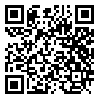Volume 13, Issue 5 (Sep & Oct 2023)
J Research Health 2023, 13(5): 343-350 |
Back to browse issues page
Download citation:
BibTeX | RIS | EndNote | Medlars | ProCite | Reference Manager | RefWorks
Send citation to:



BibTeX | RIS | EndNote | Medlars | ProCite | Reference Manager | RefWorks
Send citation to:
Mohammadnabizadeh S, Najafpoor A A, Ghavami V. Effect of Health Education on COVID-19 Preventive Behaviors in Oil Industry Workers: An Application of Health Belief Model. J Research Health 2023; 13 (5) :343-350
URL: http://jrh.gmu.ac.ir/article-1-2189-en.html
URL: http://jrh.gmu.ac.ir/article-1-2189-en.html
1- Social Determinants of Health Research Centre, Mashhad University of Medical Sciences, Mashhad, Iran. , mohammadnabizadehs@mums.ac.ir
2- Social Determinants of Health Research Centre, Mashhad University of Medical Sciences, Mashhad, Iran.
2- Social Determinants of Health Research Centre, Mashhad University of Medical Sciences, Mashhad, Iran.
Abstract: (1367 Views)
Background: Recently, the pandemic of coronavirus disease 2019 (COVID-19) is a new emerging universal challenge in infectious epidemic disease management. Even today, with access to vaccines, the most effective intervention is behavioral intervention, and as new types emerge, it continues to be significant. The goal of the present study was to promote preventive behaviors during the coronavirus pandemic among oil factory workers using the health belief model (HBM).
Methods: A total of 138 onshore shift workers (69 control and 69 case group) were randomly chosen from the two sites of oil fields in southern Iran. Data collection tools were demographic characteristics questionnaire, COVID-19 knowledge questionnaire, HBM questionnaire, and prevention behaviors questionnaire. The Whatsapp application was used to educate the intervention group. Workers completed questionnaires at baseline, after the intervention, and three months after the educational program. Data analyses were done using SPSS software, version 24.
Results: Except for knowledge and cues to action, there were significant interactions between time and group for HBM constructs and behavior (P≤0.05). Furthermore, there were significant changes in all variables between follow-up and baseline in the intervention group (P≤0.05). The linear regression indicated that the perceived benefit (ß=0.48, P=0.001) and self-efficacy (ß=0.40, P=0.001) were the most effective factors in preventive behavior, respectively.
Conclusion: The results showed that efficient education based on the HBM and emphasizing enhancing knowledge and preventive behavior adoption can prevent individuals from developing COVID-19 and its complications. Considering that the perceived benefits and self-efficacy were the strongest predictor of behavior, attention to these constructs in educational interventions, especially among oil factory shift workers studied, who are at risk of COVID-19 and without enough knowledge, can provide better outcomes related to COVID-19 preventive behaviors.
Methods: A total of 138 onshore shift workers (69 control and 69 case group) were randomly chosen from the two sites of oil fields in southern Iran. Data collection tools were demographic characteristics questionnaire, COVID-19 knowledge questionnaire, HBM questionnaire, and prevention behaviors questionnaire. The Whatsapp application was used to educate the intervention group. Workers completed questionnaires at baseline, after the intervention, and three months after the educational program. Data analyses were done using SPSS software, version 24.
Results: Except for knowledge and cues to action, there were significant interactions between time and group for HBM constructs and behavior (P≤0.05). Furthermore, there were significant changes in all variables between follow-up and baseline in the intervention group (P≤0.05). The linear regression indicated that the perceived benefit (ß=0.48, P=0.001) and self-efficacy (ß=0.40, P=0.001) were the most effective factors in preventive behavior, respectively.
Conclusion: The results showed that efficient education based on the HBM and emphasizing enhancing knowledge and preventive behavior adoption can prevent individuals from developing COVID-19 and its complications. Considering that the perceived benefits and self-efficacy were the strongest predictor of behavior, attention to these constructs in educational interventions, especially among oil factory shift workers studied, who are at risk of COVID-19 and without enough knowledge, can provide better outcomes related to COVID-19 preventive behaviors.
Type of Study: Orginal Article |
Subject:
● Health Education
Received: 2022/12/3 | Accepted: 2023/04/29 | Published: 2023/08/2
Received: 2022/12/3 | Accepted: 2023/04/29 | Published: 2023/08/2
| Rights and permissions | |
 |
This work is licensed under a Creative Commons Attribution-NonCommercial 4.0 International License. |









